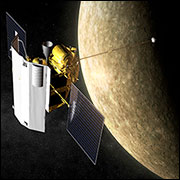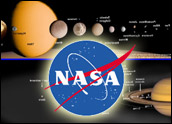
Calling it “the next generation of realism” Google on Monday introduced the latest version of Google Earth, promising more seamless interactivity with Mother Earth and some unusual new features.
“In Google Earth 6, we’re taking realism in the virtual globe to the next level with a truly integrated Street View experience — and 3-D trees,” explained Google product manager Peter Birch on the company’s official blog. “We’ve also made it even easier to browse historical imagery.”
Though “all great new advances look like magic when they’re first released,” Brooklyn Law School Internet and telecommunications law professor Jonathan Askin told TechNewsWorld, “Google Earth 6 is indeed world-shaking, and disrupts a lot of traditional thinking about how we view the world.”
Part of that thinking involves paradigms about privacy and law enforcement, Askin explained.
“Google Earth 6 will be met with concerns, some logically justified,” he said. “Concerns include potential encroachment on individual privacy, and potential law enforcement and security risks that ensue by placing such powerful tools in the hands of all individuals, including those with nefarious intentions.”
Fly Like a Google
The newly improved street view experience, Google’s Birch explains, combines Street View — an ingenious yet controversial feature of Google Maps and Images — and Google Earth, where flying over mountains, trees, and rooftops from an entry point somewhere in outer-space has become a virtual Google trademark.
“In Google Earth 6, you can journey from outer space right to your doorstep in one seamless flight,” Birch writes.
Ready to drop into the scene from his perch alongside the usual navigation controls, “Pegman” — Google’s virtual travel assistant — also returns. But gone, Google claims, are Pegman’s jerky, stilted motions that formerly got him hung up on the Google Street View camera’s location at any given point in his stroll.
Now, Pegman can move from one location to another “as if you’re walking down the street by using the scroll-wheel on your mouse or the arrow keys on your keyboard,” Birch explains.
Clicking the “exit” button immediately returns viewers to the “aerial view,” where they can fly to their next destination.
Google Appleseed?
Possibly part of Google’s running theme, “Don’t be Evil,” Google Earth includes an outreach program working with Africa’s Green Belt Movement and Brazil’s Amazon Conservation Team to model threatened forests around the globe.
In another pitch for the environment, Google Earth 6 adds three-dimensional trees to go with “many thousands of 3-D buildings,” Birch explains. “I think we can all agree that our planet without trees would be a pretty desolate place.”
The new renderings are important enough that “in addition to our main announcement about the updates in Google Earth 6, we also released additional information specifically about the 3D trees,” Google spokesperson Deanna Yick told TechNewsWorld.
The digital pix include dozens of tree species, from Japanese Maple to the cacao tree. The “3D buildings layer” activates the trees, which appear with Google Earth’s new ground-level navigation system.
“The exciting addition of 3D trees is part of our ongoing effort to continue making our virtual atlas as reflective of the real world as possible,” Yick said.
Back to the Future
Google Earth 5 included a popular time-traveling feature that allowed viewers to see places as they were decades ago: Warsaw before World War II; London in 1945; Haiti before the earthquake.
“But it wasn’t always obvious when historical imagery was available for a particular place, making this feature one of Google Earth’s lesser-known gems,” Birch explains.
To change that, Google has incorporated historical imagery into a status bar at the bottom of the screen. In areas with available historical images, clicking on the date of the oldest imagery in the status bar transports viewers back in time, where they can browse all the historical imagery available for that location.
Despite his previously voiced concerns, Askin said the new Google Earth 6 features add up to “a net benefit. It’s a beautiful, user-friendly site to help us gain better awareness of our neighborhoods and our planet.”





















































